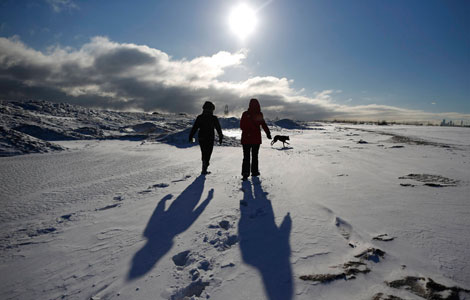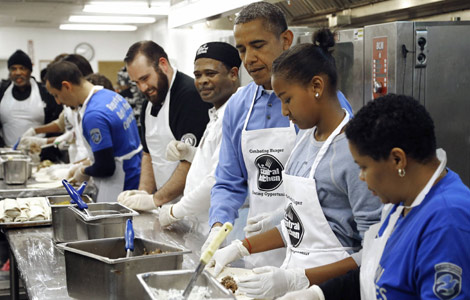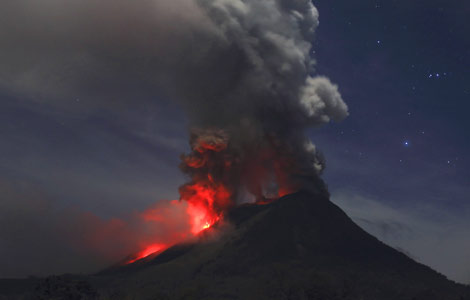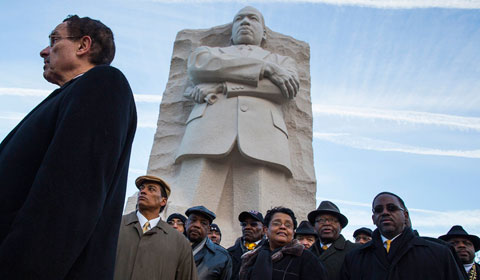Chinese, Japanese leaders won't meet on Olympic sidelines
Updated: 2014-01-21 21:26
By ZHANG YUNBI and WU JIAO (China Daily)
|
||||||||
Beijing on Tuesday ruled out "any form of meeting" between President Xi Jinping and Japanese Prime Minister Shinzo Abe as the two leaders are bound for the opening ceremony of the Winter Olympic Games in Sochi, Russia, in February.
Addressing a news conference in Beijing, Vice-Minister of Foreign Affairs Cheng Guoping said that China's stance concerning a meeting with Abe has been clear.
"Before the Japanese leader corrects his erroneous position ... China will not consider any form of contact with the Japanese leader during the Sochi Winter Olympic Games," Cheng said.
Beijing announced on Monday that President Xi will attend the games from Feb 6 to 8 at the invitation of Russian President Vladimir Putin. Japan also said that Abe is considering attending the opening ceremony.
In December, Abe visited the Yasukuni Shrine, which honors 14 Class-A World War II war criminals. The visit has angered many countries, including China and South Korea, that were victims of Japanese atrocities during the war.
Zhou Yongsheng, a professor on Japanese studies at China Foreign Affairs University, said that sincerity from the Japanese side is vital in mending fences between the neighbors.
"Without heartfelt sincerity, a meeting between the two leaders will go no more than merely a topic (for Abe) that makes headlines that can somewhat shore up his domestic public support," Zhou said.
During a lecture at a university in Tokyo on Monday, Chinese Ambassador to Japan Cheng Yonghua said that although the Chinese side believes that leaders' dialogues are of great significance for a relationship, "such dialogues should be based on sincerity and goodwill".
The Japanese leader's pilgrimage to the shrine "showed his ignorance of Chinese people's feelings and Beijing's major concerns", and has disregarded the relationships with neighboring countries including China, Cheng said.
Liang Yunxiang, a professor on Japanese studies at Peking University, said Tokyo has attached a "huge political significance" to a meeting with the Chinese leader because such an encounter may be seen as a breakthrough that Tokyo has been longing for.
On the sidelines of the G20 summit in St. Petersburg last September, Xi expressed strong concerns over the relationship during a brief encounter with Abe in a VIP room intended for participating leaders.
During their brief talk, Xi pointed out that China-Japan ties were "facing grave difficulties", and urged Japan to correctly deal with such sensitive issues as the Diaoyu Islands and history.
Xi has a tight schedule during his stay in Sochi, and a meeting with Putin has been arranged, Cheng Guoping said.
Beijing believes that the Russian side "is capable of ensuring security" and Moscow will make sure the Winter Olympic Games is a success, he said in a response to a question about security.
"The Chinese side is willing to maintain close communication and coordination with the Russian side," he said.
Since its success in bidding for the Winter Olympic Games, Moscow has cracked down on terrorist groups, and recent attacks have prompted Moscow to step up pressure, said Feng Yujun, director of the Institute of Russian Studies at the China Institutes of Contemporary International Relations.
Feng warned that terrorists have a clear vision of the shock waves triggered by a deadly attack, including "a heavy blow to Putin's effort to promote Russia's national image, especially the image of the southern area".
"Densely populated public locations also need a high level alert, including subway stations and airports in Moscow," Feng said.
Contact the writer at zhangyunbi@chinadaily.com.cn
Related reading:
 |
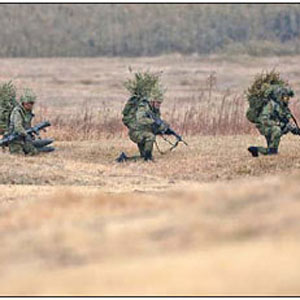 |
| If Abe has his way, history would vanish | Japan tries to justify Abe's shrine visit |
Most Viewed
Editor's Picks

|

|

|

|
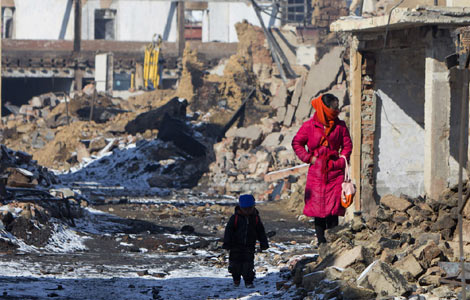
|

|
Today's Top News
Obama, Putin discuss Olympics security in call
Smog descends on the 'two sessions' agendas
Expats encouraged to make suggestions
Man, 36, executed for rape, murder of sex slaves
IMF taking more upbeat view of growth in China
Xi won't meet Abe at Sochi Olympics
Suspected cyberattack on China
China tightens H7N9 coordination
US Weekly

|

|

